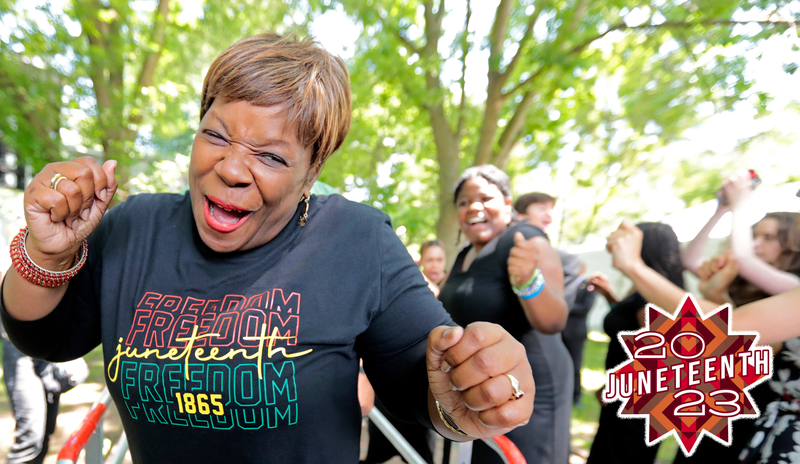Juneteenth 2023: The True Story Behind Our Newest Federal Holiday

- Oops!Something went wrong.Please try again later.
As exciting as having an extra day off work can be, sometimes we get a little fuzzy on the details behind some of our favorite holidays. That’s especially true with the newest federal holiday, Juneteenth. So what exactly are we celebrating this weekend? Allow The Root to break it down for you.
While it’s a common misconception that Juneteenth is the day slavery officially ended in the United States, that’s not quite right. On June 19th, 1865, Major General Gordon Granger proclaimed that all enslaved people in Texas were free in accordance with a “proclamation from the Executive of the United States.” Naturally, the proclamation he’s referring to is the Emancipation Proclamation issued by President Lincoln, freeing all enslaved people within the Confederacy.
Read more
Aside from Halle Bailey, Here Are Other Black Disney Actors and Characters We Love
Megan Thee Stallion Becomes 1st Black Woman to Land Forbes 30 Under 30 Cover
15 Priceless Black Twitter Moments Worth Remembering [Updated]
Only folks who know their history might be a tad confused by the date. “Granger wasn’t just a few months late,” writes historian and The Root co-founder Henry Louis Gates Jr. “The Emancipation Proclamation itself, ending slavery in the Confederacy (at least on paper), had taken effect two-and-a-half years before, and in the interim.”
Alright, so if Lincoln had already freed the slaves, and the civil war had been over for months, why did it take until June of 1865 for enslaved people in Texas to be freed? “It would be easy to think so in our world of immediate communication, but as Granger and the 1,800 bluecoats under him soon found out, news traveled slowly in Texas,” writes Gates. It wasn’t until June that the Trans-Mississippi army, which held Texas, surrendered.
And even after the army surrendered, enslaved people in Texas weren’t free to just leave. Enslavers often waited to tell people of Major General Gordon’s proclamation, and even in cases where they were aware, many were punished for leaving. It would be months before the Freedmen’s Bureau arrived in Texas to help free the remaining enslaved people. And it would be six months from the initial proclamation before the 13th Amendment was ratified, declaring slavery unconstitutional (except as a punishment for a crime).
As Black Texans spread throughout the country, the tradition of celebrating Juneteenth as a day of freedom spread with them. The first push to make Juneteenth a federal holiday began in the mid-90s. In 1997, Senator Trent Lott introduced a joint resolution commemorating “Juneteenth Independence Day.” The calls to make Juneteenth a federal holiday grew in the wake of George Floyd and Breonna Taylor’s killing at the hands of police in 2020. And in 2021, President Joe Biden signed a law making Juneteenth a federal holiday.
So as you’re celebrating Juneteenth this weekend, feel free to share the true meaning of this Texan holiday turned national day of recognition!
More from The Root
Sign up for The Root's Newsletter. For the latest news, Facebook, Twitter and Instagram.

